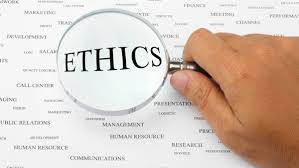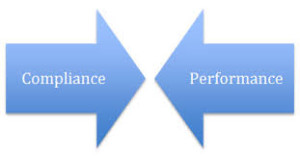Defining Business Ethics
 One of the more frustrating topics for discussion is defining business ethics. It is frustrating to see how complex and unhelpful the discussion turns when defining business ethics.
One of the more frustrating topics for discussion is defining business ethics. It is frustrating to see how complex and unhelpful the discussion turns when defining business ethics.
I have two tests for how to deal with this issue.
- Do you use simple terms that can be easily communicated internally in a company?
- Do the terms embrace the kind of values important to the company?
One thing that can quickly be decided on this issue – there is no need for complex theories, mumbo-jumbo and reliance on sophisticated philosophical ideas. Aristotle, Socrates, Sarte and Camus have no role to play in defining business ethics– sorry to disappoint all you philosophy majors.
The first step is not to kill all the lawyers, but throw out everything you ever learned about philosophy and rigorous philosophical analysis of complex issues.
In the end, business ethics can easily be translated into two inquiries:
- How do you build trust with your stakeholders?
- Have you built a culture that is founded on integrity?
My two favorite terms used to define a culture of ethics are obvious – trust and integrity. If defined with these terms, the actual steps needed to build an ethical culture will become easy to identify. If senior executives operate in a manner designed to promote trust and integrity among its employees, shareholders, vendors/suppliers and other stakeholders in the community, I  am sure the culture created will maximize the ability of the company to maintain sustainable growth and financial performance.
am sure the culture created will maximize the ability of the company to maintain sustainable growth and financial performance.
A culture of trust is one in which senior executives conduct themselves in a way to promote collaboration and respect with its managers and employees. Trust depends on transparency, equal treatment of similarly situated personnel, consistent conduct that is repeated in the face of different challenges.
Similarly, a culture of integrity is reflected in the treatment of other stakeholders, most especially employees and shareholders. A culture of integrity means that senior executives conduct themselves at a high standard, promoting the company’s code of conduct, and adhering to ethical standards designed to promote the welfare of its stakeholders.
The values of trust and integrity are exemplified in a number of areas, including: senior executive performance and rewards; elevation of the compliance function; business decisions and weighing of tradeoffs; organizational justice in the company; equal treatment of similarly-situated executives, managers and employees; incentives to encourage behaviors that promote trust and integrity; and clear disincentives against behaviors that undermine trust and integrity.
 Contrary to many suggestions from consultants and so-called experts in this area, the key to promoting a culture of ethics is defining a simple message that can be communicated easily to stakeholders, and around which company behaviors and expectations can be defined.
Contrary to many suggestions from consultants and so-called experts in this area, the key to promoting a culture of ethics is defining a simple message that can be communicated easily to stakeholders, and around which company behaviors and expectations can be defined.
In the end, this is not rocket science (although last time I used this expression, the General Counsel at a prospective client told me his last job before becoming a lawyer was “rocket scientist”), and companies, if committed to creating a culture of ethics can do so without hiring a band of consultants and public relations consultants to help them navigate the issues. You would be surprised at how effective common sense can be in creating an effective culture of ethics.
















Mr. Volkov,
I’m a compliance professional with a graduate-level academic background in philosophy and ethics. I enjoy your blog, but I get irritated when people in compliance define ethics to exclude ethical considerations that fall outside of the compliance domain (Roy Snell, CEO of SCCE, also did this in a blog post last year). I would agree with you that such ethical considerations should not be the concern of the compliance professional, but, in case you were unaware, business ethicists concern themselves with issues beyond the realm of compliance. Compliance does not own the term “business ethics,” and defining business ethics in such a way as you do, all while disparaging the legitimate contributions of ethical theory, comes off as arrogant. It also reveals how little you know about the systematic study of ethics in general and business ethics in particular. Of the four philosophers you name, mainstream practical/applied ethicists would draw only on the virtue ethics developed by Aristotle (and probably endorsed by you in your personal and professional life).
Also, I can’t help but notice that your purportedly simple two-part test (which is more about organizational culture than business ethics, anyway) only works when you pack the concepts of “trust” and “integrity” with other ethical concepts like welfare, organizational justice, transparency, equal treatment of similarly-situated individuals, and other underlying ethical assumptions. What happens when these obligations conflict? What are the appropriate “ethical standards designed to promote the welfare of [an organization’s stakeholders”? What is the “high standard” to which executives should hold themselves? Why not equal treatment of ALL individuals, regardless of how they are situated? What is organizational justice, exactly?
If business ethics was simple and a matter of common sense, the answers to the above questions would be self-evident. But they’re not. Business ethics is hard, and so is philosophy. I encourage you to read this primer on Applied Ethics (http://www.iep.utm.edu/ap-ethic/) published in the Internet Encyclopedia of Philosophy, a peer-reviewed site maintained by the University of Tennessee – Martin.
Sincerely,
Scotty Jenkins